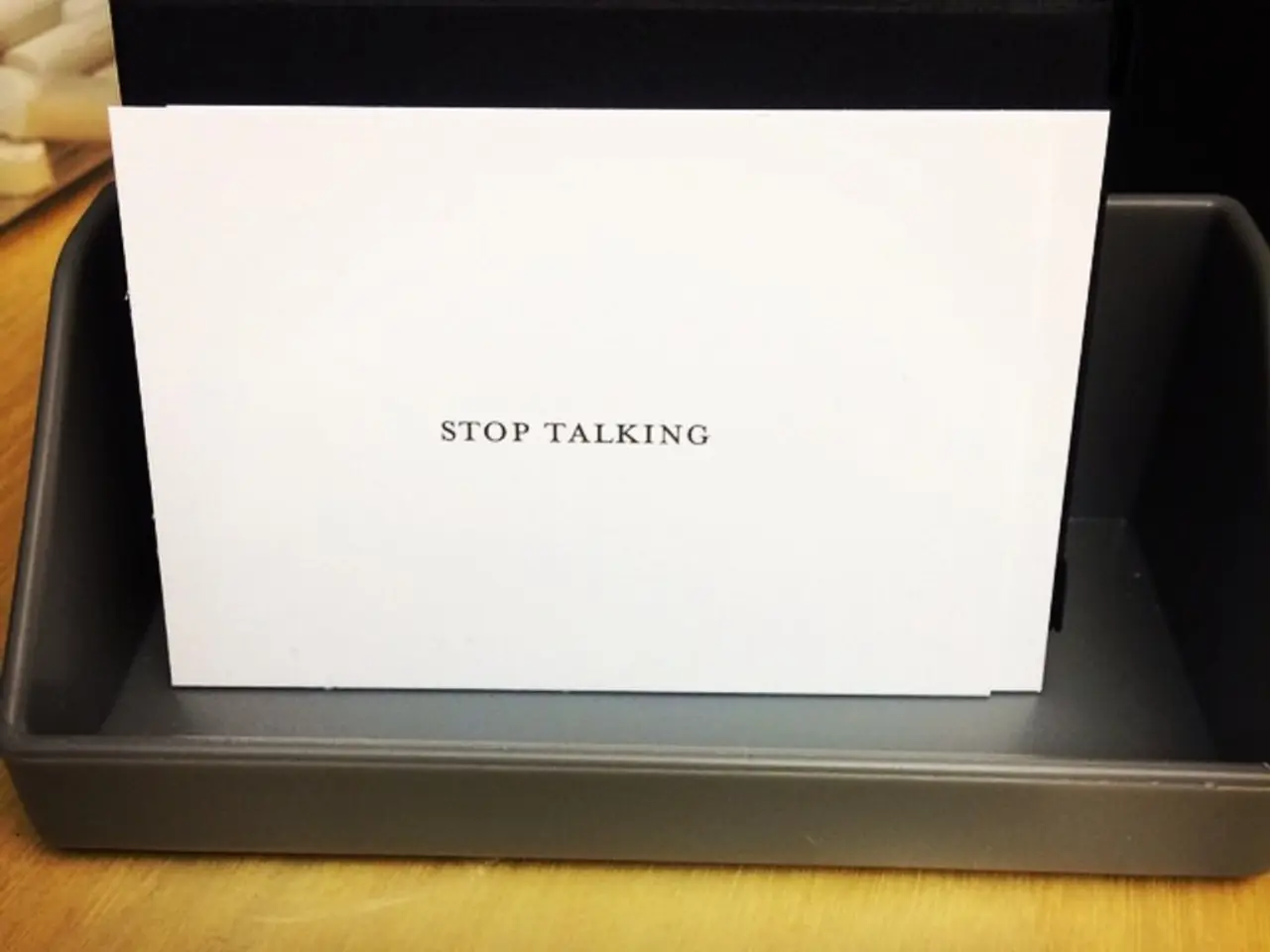Disorder in Organization and Executive Function: Overcoming Executive Dysfunction in ADHD
In the daily struggle to maintain a well-organized life, those with Attention Deficit Hyperactivity Disorder (ADHD) and executive dysfunction may find themselves facing unique challenges. However, with the right strategies, it is possible to counteract these challenges and improve productivity, emotional regulation, and daily functioning.
Create a Routine
Establishing consistent schedules for daily activities like waking up, meals, and bedtime is a key strategy for reducing decision fatigue and improving time management. A structured routine provides a framework for the day, reducing the mental effort required to make decisions and helping to maintain focus.
Use Visual Aids
Calendars, to-do lists, whiteboards, and colour-coding can engage attention and help with planning and organization. Visual aids make it easier to see at a glance what needs to be done, and the use of colours can help prioritize tasks.
Break Tasks into Smaller Steps
Dividing overwhelming tasks into manageable parts makes them more achievable and less intimidating. This approach, known as chunking, helps to break down complex tasks into smaller, more manageable steps, reducing the feeling of being overwhelmed and making it easier to focus on one task at a time.
Modify the Environment
Reducing distractions is crucial for those with ADHD and executive dysfunction. This can be achieved by organizing the workspace, using noise-canceling headphones, and creating quiet or movement-friendly zones to support focus.
Practice Self-Care
Adequate sleep, regular breaks, hydration, and rewarding oneself help restore executive function resources and improve focus and emotional regulation. It is important to prioritize self-care and take breaks when needed to avoid burnout.
Use Written Communication and Reminders
Keeping clear, written checklists and deadlines helps memory and follow-through, especially when combined with digital tools like calendar reminders. Written communication provides a tangible reminder of what needs to be done, making it easier to stay on track.
Brain Dump Technique
Writing down all thoughts and tasks, then prioritizing and categorizing them before scheduling helps manage overwhelming information and executive paralysis. This technique, known as the brain dump, helps to clear the mind and focus on what is most important.
Seek Executive Function Coaching or Therapy Support
Coaching provides practical, real-time strategies to improve organization, time management, and daily routines. Therapy can complement this by addressing emotional or psychological barriers that may be hindering progress.
These approaches work synergistically to counteract the challenges of executive dysfunction typical in ADHD, improving productivity, emotional regulation, and daily functioning over time.
Streamlining the Organization Process
Categorizing items into different groups, incorporating organizing tasks into your daily routine, and designating a specific spot for incoming mail can help manage clutter and keep the environment organized. Setting deadlines for selling or donating items can help prevent clutter accumulation.
Embracing Imperfection and Realistic Expectations
It is important to embrace imperfection and set realistic expectations when it comes to organization. A clutter-free environment may not always be possible, but with the right strategies, it is achievable to maintain a manageable level of organization.
Investing in Storage Solutions
Investing in clear containers or bins for storage can make it easier to locate items. Under-the-bed storage boxes with lids provide hidden storage for items. Over-the-door hanging shelves or organizers can maximize space utilization in small areas.
Going Paperless
Going paperless as much as possible can help minimize paper clutter. Digital tools like calendars, email, and cloud storage can help reduce the amount of paper that needs to be managed.
ADHD and Organization: Not Mutually Exclusive
ADHD and organization are not mutually exclusive, and strategies can be tailored to neurodiverse needs. Designating a specific work area or reading nook can enhance focus and productivity. Utilizing a reward system can provide an extra incentive to stay on track and complete tasks.
Seeking Support
Seeking support from family, friends, professionals, or colleagues can help with organization tasks. It is important to remember that asking for help is not a sign of weakness, but a smart strategy for managing challenges and achieving success.
- For those with ADHD and executive dysfunction, creating a routine with consistent schedules for daily activities can help reduce decision fatigue and improve time management.
- Using visual aids like calendars, to-do lists, whiteboards, and color-coding can engage attention and help with planning and organization.
- Breaking tasks into smaller steps, or 'chunking,' can make overwhelming tasks more manageable and reduce the feeling of being overwhelmed.
- Modifying the environment by reducing distractions and organizing the workspace can help improve focus.
- Self-care practices such as adequate sleep, regular breaks, hydration, and rewarding oneself can restore executive function resources and improve focus and emotional regulation.
- Written communication and reminders, like clear checklists and digital tools, can help memory and follow-through, especially for those with ADHD.
- The brain dump technique of writing down all tasks and thoughts, then prioritizing and categorizing them, can help manage overwhelming information and executive paralysis.
- Executive function coaching or therapy support can provide practical strategies and address emotional or psychological barriers for improving organization, time management, and daily routines.




